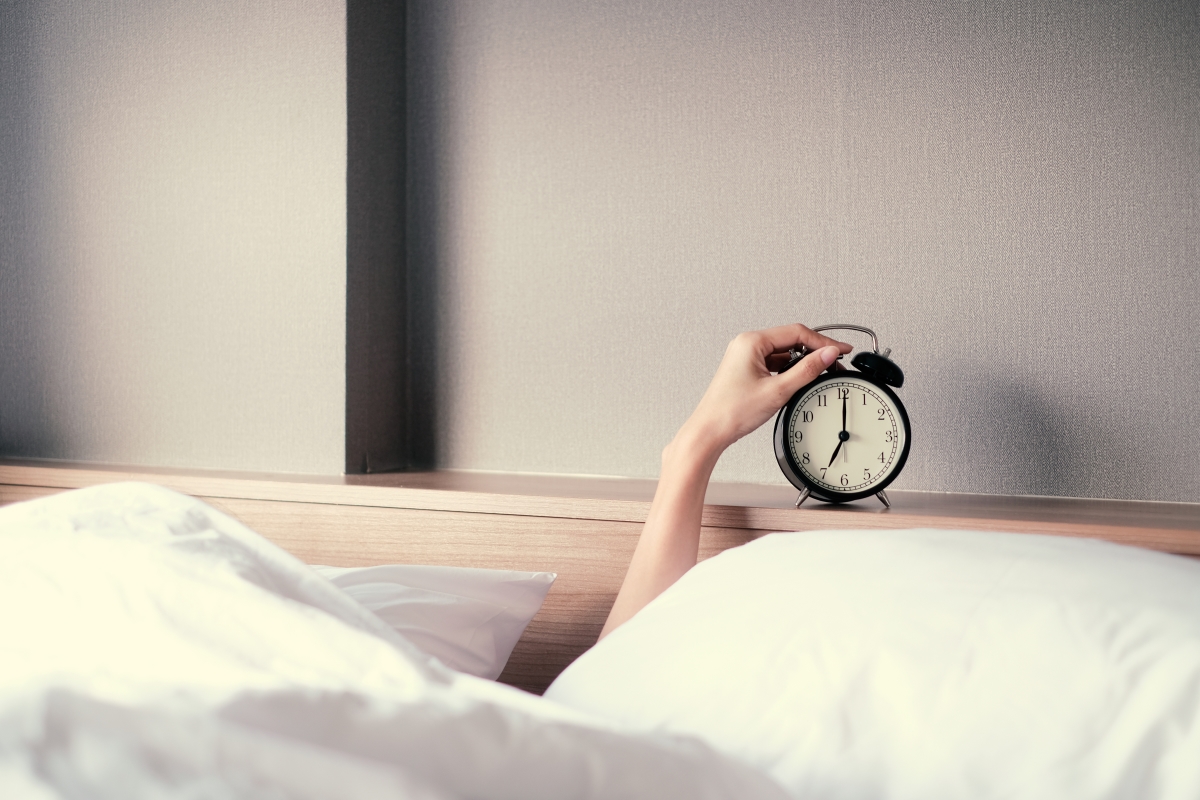Why sleeping LESS could be the key to sleeping better
One of the classic mistakes made by anyone with sleep problems is to try and spend more time in bed. It might sound like a good idea, but lying in bed wide awake, worrying about how tired you’re going to feel in the morning, can be very stressful and certainly not conducive to a good night’s sleep.
If you’ve got into the habit of going to bed early to try to catch up on lost sleep, you could be spending a disproportionate amount of your time in bed both awake and stressed. This can set up an unwitting pattern of behaviour where your brain comes to associate being in bed with being awake, making it even more likely that you’ll have trouble sleeping.
Are you spending too much time in bed?
Do you dread night-time and dislike your bed and your bedroom? Have you come to associate bed with the stress of insomnia? If you spend a lot of hours in bed, but only a few hours actually asleep you could have what sleep specialists call poor ‘sleep efficiency’.
What is sleep efficiency?
Sleep efficiency is a scientific way of measuring your sleep quality. It is a way of calculating the proportion of time you spend in bed actually asleep, as opposed to trying to get to sleep or lying in bed wide awake. Great sleep efficiency happens when you fall asleep the minute your head hits the pillow and wake up with your alarm, having slept soundly the entire night. Poor sleep efficiency is when you lie awake for hours worrying about the fact that you’re not asleep. You have good sleep efficiency if you are asleep for 85% of the time you spend in bed.
When less sleep can lead to more
The most effective way to cure insomnia is to reboot your brain by putting yourself through a short course of Sleep Restriction Therapy which actually demands that you cut back on your sleep. It sounds barbaric, but studies have shown that sleep restriction is more effective than drugs, and the results last, long-term1 2. Cutting down on the amount of time you spend in bed really does reset the brain – people who try it find they sleep more deeply, wake up less often and feel much better during the day.
Five steps to better sleep efficiency
- Keep a sleep diary for a week to measure exactly how much time each night you spend asleep.
- Add up the total time you spend asleep and take an average per night – it might be five or six hours.
- For one week, restrict yourself to only spending five or six hours (or whatever your usual total sleep time) in bed. This might mean forcing yourself to stay awake until 1am before going to bed. It is important that you set your alarm to wake yourself up at the same time every morning. No matter how little you sleep, do not restrict your time in bed to less than five hours.
- Stick to this plan rigorously – no snoozing or napping. It’s not easy – you need to avoid driving or using machinery while you go through this process.
- Within a few days you should find you sleep solidly during the hours you are in bed. When you are sleeping soundly for a few nights in a row, you can extend the time you spend in bed by 20-minute intervals every few days. Most people will find four weeks of SRT is enough, but it can take up to eight weeks if you have serious long-term insomnia.
SRT-lite
If full sleep restriction is just too much for you to contemplate, try a milder version: simply try reducing your sleep window by one hour. So, for example, if your normal sleep window is 11pm to 7am, try going to bed at 12pm and then gradually increase your sleep window as your sleep efficiency improves.
NOTE: If you think you might have a significant health problem, or a sleep disorder such as sleep apnoea, consult your doctor before starting on a new programme such as this one. SRT should not be tried by pregnant women or young children.
If you’re having trouble falling and staying Fast Asleep, you may benefit from an evidence-based diet and lifestyle approach like The Fast 800 programme. Co-founded by Dr Michael Mosley, The Fast 800 online programme is designed to help members lose weight and regain their health with food, exercise and mindfulness guidance based on science. Poor-quality sleep is common among those who are overweight, and many of The Fast 800 online programme members report an improvement in their sleep and mood while following the programme. Learn more.


